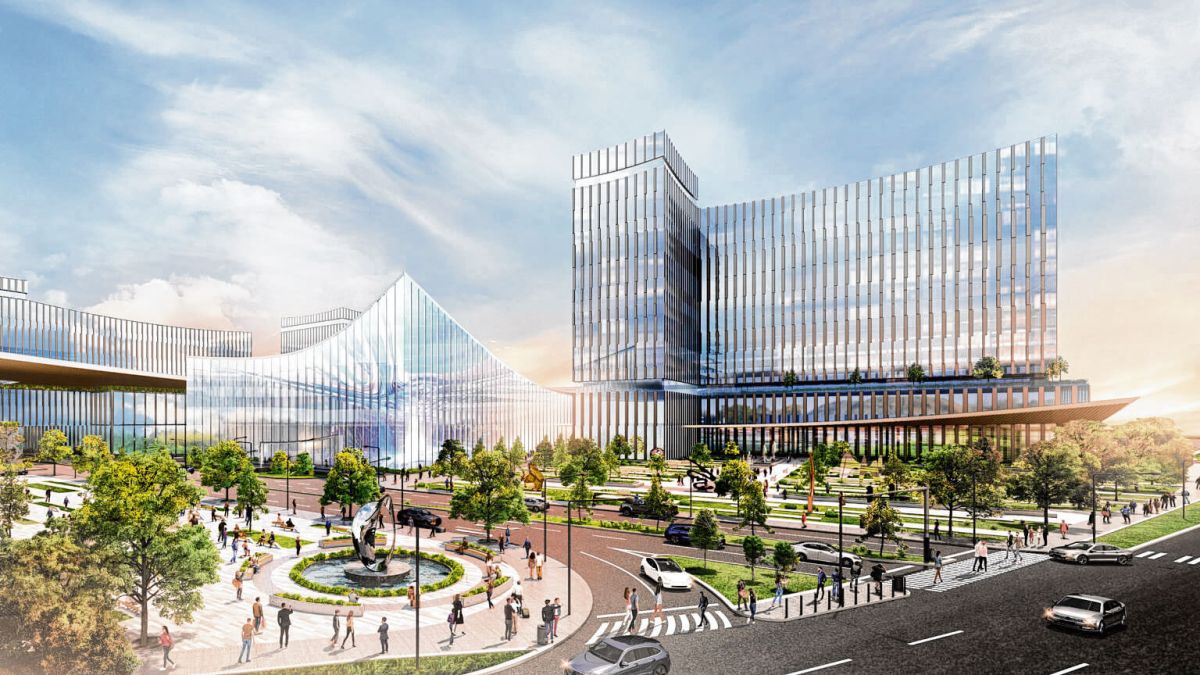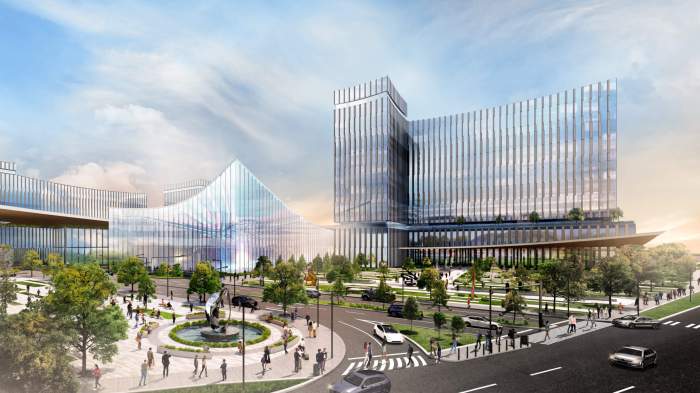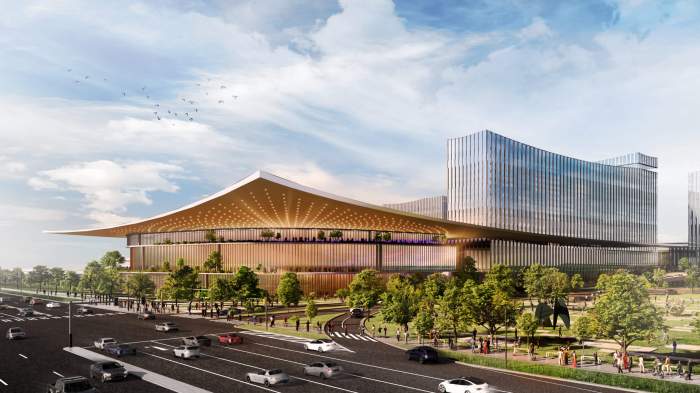When Allison O’Brien Silva heard back in March that the Nassau County Legislature was planning a vote in May on a proposal to build a gambling casino and resort on the 72-acre Coliseum site in the heart of the county, she knew she had to be there – in strong opposition.
“I grew up in East Meadow,” said Silva, a former McKinsey & Company consultant and now the mother of three children who lives in Manhasset. “I loved my childhood growing up there.” She found the idea of a casino in her former hometown appalling.
“Casinos are predatory,” she said.
‘Say No To The Casino’ Civic Association
Silva and a group of Nassau residents have since formed an organization, Say No to the Casino Civic Association, which she said is “growing by leaps and bounds.”
Silva said the organization has gathered 3,300 names on a petition opposing the $4 billion project, citing their fear that a casino would detract from the suburban environment, attract students from nearby Hofstra University who should not be spending their money gambling, add to an already traffic-clogged area, and offer little to the county culturally.
The Say No to the Casino Civic Association is planning to wage a major fight in the months ahead. But it is facing an uphill battle.
The county legislature in May voted 17-1 to approve a 99-year agreement that would allow Las Vegas-based Sands to develop the casino and resort. Legis. Delia DeRiggi-Whitton (D-Glen Cove) cast the lone no vote. Legis Kevan Abrahams (D-Freeport), the Democratic minority leader, recused himself, saying he had a conflict of interest involving the employment of a relative.
In an interview with the Press, DeRiggi-Whitton said she voted against the casino proposal for several reasons. “I don’t think they (the county) did a real cost analysis,” she said, an assertion county officials deny. But primarily, she said, she did not believe “the county should be promoting gambling.”
The Sands, too, must undergo a fight before it can open its doors to what are expected to be thousands of visitors per day. It needs zoning approval from the Town of Hempstead and — of paramount importance — a gambling license from New York State’s Gaming Commission. The state plans to issue three gaming permits in the downstate region, and 11 companies, including the Sands, are hoping to win one of those licenses.
A Community Advisory Committee is also expected to hold a series of hearings on the proposal, providing opponents and supporters yet another chance to voice their opinions. Unions have already expressed strong support for the proposal, citing the need for jobs.
Support for the Casino
Nassau County Executive Bruce Blakeman has supported the idea of a casino and resort at the coliseum site since being elected to office in November 2021.
“The overwhelming bipartisan approval of the lease terms with the Sands by the County Legislature affirms that Nassau County has made the right decision,” Blakeman said in a statement.
Robert Goldstein, the Sands’s chief executive, said in a statement that the legislature’s action was “an important step in our company’s efforts to secure a New York gaming license and ultimately develop a world-class hospitality entertainment and gaming destination.”
The 72-acre county-owned site, known as the Nassau Hub, has been a thorn in the side of political leaders for years now, as various plans have fallen through to reinvigorate the aging coliseum that was abandoned by the Islanders after the 2014-15 hockey season.
The Islanders relocated to Barclays Center in Brooklyn. Charles Wang, the then-Islanders owner, proposed the Lighthouse Project, which would have transformed the Coliseum into houses, offices, restaurants and stores as well as a five-star hotel.
Wang, who died in 2018 at age 74, would have kept the Islanders on Long Island, but Nassau residents voted against building a new arena for the team. The county would have had to borrow $350 million for the project. That would have meant a tax increase, and voters said no.
Nassau Presiding Officer Richard Nicolello (R-New Hyde Park) has said that the coliseum site is now “a 72-acre parking lot and an obsolete arena.”
Enter the Sands.
Casinos are historic American venues, and in the 1950s and ‘60s, their stages featured members of the Rat Pack, including Frank Sinatra and Jerry Lewis. The Sands, seeking to expand, jumped on what it saw as a prime opportunity to open in the New York area. That’s when the New York State Gaming Commission earlier this year issued a request for applications for three downstate licenses. The Sands was so anxious to open at the Coliseum site that it included in the lease a lump sum payment of $54 million to Nassau County, whether something is built on the site or not.
Nearby residents don’t plan to sit idly by, said Rich Catalano, a CPA who lives in Garden City and is one of the prime leaders of the Say No to the Casino Civic group.
“This is not the Long Island I envisioned, with a casino in the middle of it,” Catalano told the Press. He knows, though, that the group is up against a formidable opponent.
“They’re well funded,” he said. “They’re playing a good game.”
Monica Kiely of Garden City, also one of the founders of the civic group, said the group is not antidevelopment.
“We’re just anti-casino,” she said. “They may have power, but we have the right side of the argument.”
And already, companies are partnering with the Sands. Canyon Ranch, which offers luxury spa services, recently announced it had signed an agreement with the Sands to develop a spa, fitness and food destination at the planned Sands.
O’Brien Silva said a park, a museum, or a medical research facility would be far better suited for the site.
“I grew up there,” she said. “I feel this is a personal assault.”

































